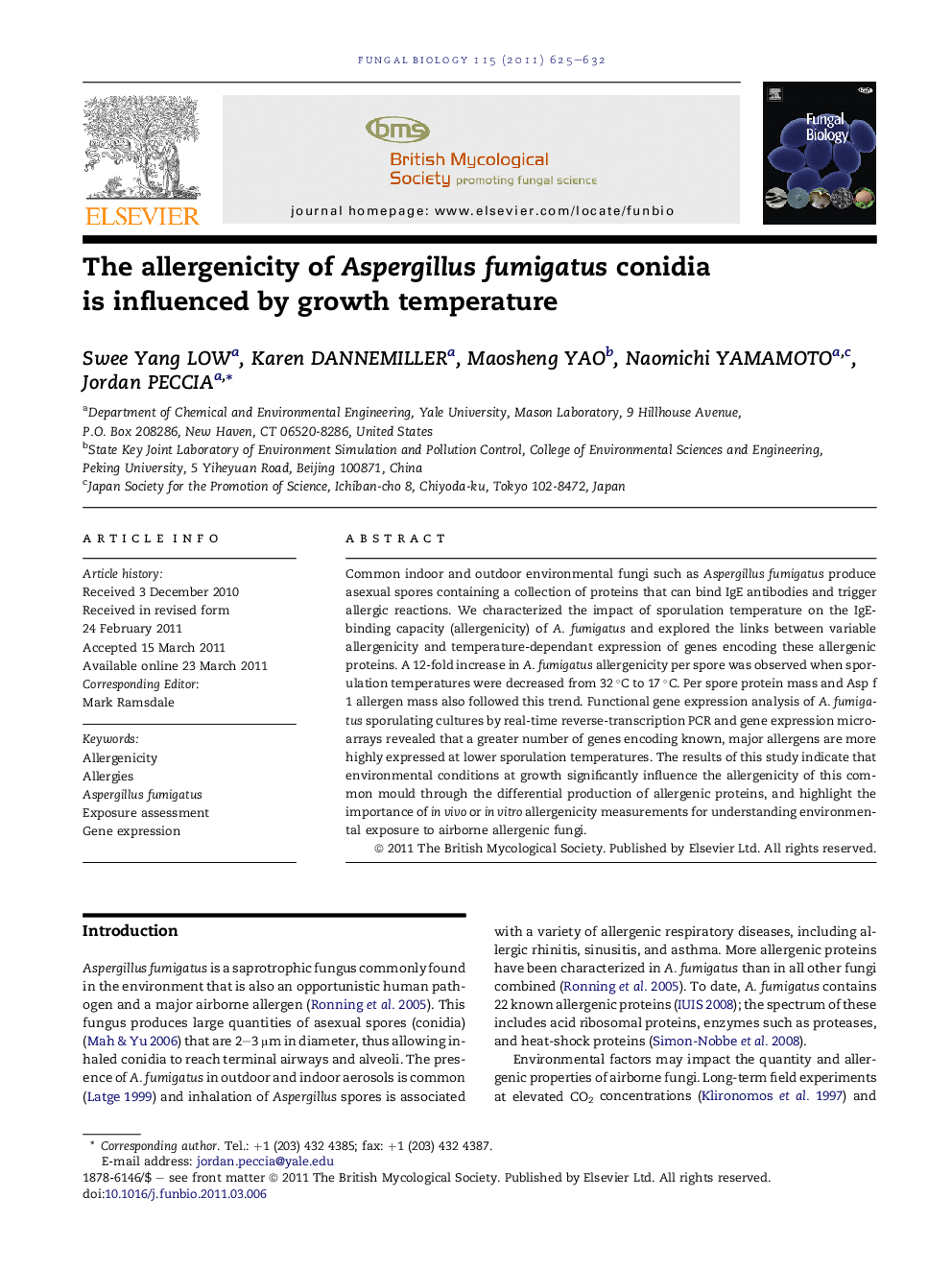| Article ID | Journal | Published Year | Pages | File Type |
|---|---|---|---|---|
| 4357406 | Fungal Biology | 2011 | 8 Pages |
Common indoor and outdoor environmental fungi such as Aspergillus fumigatus produce asexual spores containing a collection of proteins that can bind IgE antibodies and trigger allergic reactions. We characterized the impact of sporulation temperature on the IgE-binding capacity (allergenicity) of A. fumigatus and explored the links between variable allergenicity and temperature-dependant expression of genes encoding these allergenic proteins. A 12-fold increase in A. fumigatus allergenicity per spore was observed when sporulation temperatures were decreased from 32 °C to 17 °C. Per spore protein mass and Asp f 1 allergen mass also followed this trend. Functional gene expression analysis of A. fumigatus sporulating cultures by real-time reverse-transcription PCR and gene expression microarrays revealed that a greater number of genes encoding known, major allergens are more highly expressed at lower sporulation temperatures. The results of this study indicate that environmental conditions at growth significantly influence the allergenicity of this common mould through the differential production of allergenic proteins, and highlight the importance of in vivo or in vitro allergenicity measurements for understanding environmental exposure to airborne allergenic fungi.
